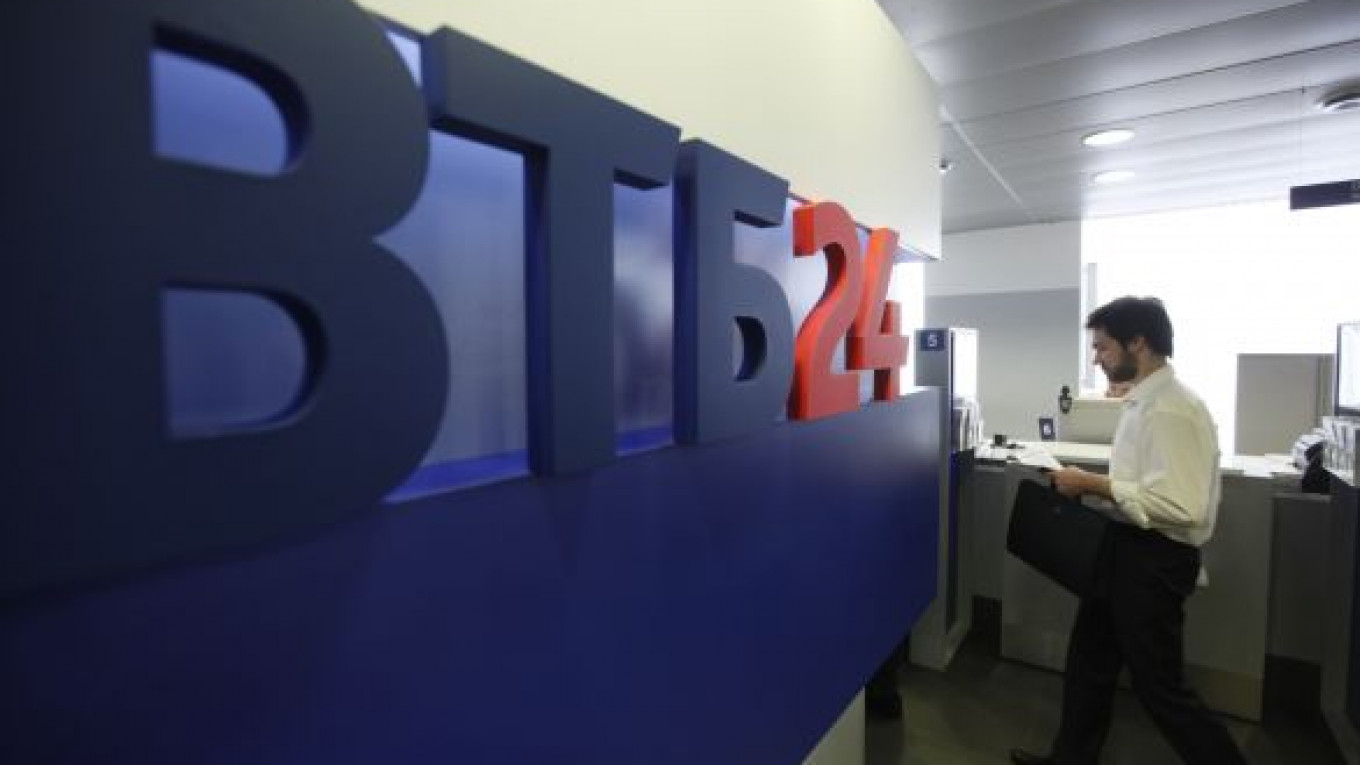ST. PETERSBURG — Rapid loan growth in Russia this year could herald a spike in bad loans and capital shortages in the financial sector, especially if the euro crisis escalates, Standard & Poor’s has warned.
Russian regulators are comfortable with the quick pace of lending growth, but bankers and analysts cautioned that similar complacency preceded the 2008 crash, which forced a sector bailout and plunged Russia into recession.
“One of the key risks we see in Russia now is very high lending growth. … It was 25-27 percent in 2011 and we are likely to see quite a high figure this year as well,” said Yelena Romanova, associate director with Standard & Poor’s in Russia.
The increase in non-performing loans, both as a proportion of fast-growing total loans and as an absolute sum, is also a matter of concern, Romanova added.
A top central banker forecast banking loan growth of 20 to 25 percent this year and played down the risk that the eurozone crisis could hit Russia as hard as the last meltdown, when the economy shrank by 8 percent.
Moscow had to spend over 4 trillion rubles ($124 billion) to support the financial sector, pumping in 700 billion rubles via subordinated loans alone to boost capital in its two biggest lenders, Sberbank and VTB.
Fueled by rising oil prices, Russia’s economy grew rapidly starting in 2000, with annual lending growth running as high as 50 percent before being stopped in its tracks by the collapse of Lehman Brothers four years ago.
As the economy starts to recover, banks are increasing lending again, but NPLs are also rising. Based on Uralsib estimates, the ratio of NPLs to total loans stood at 5 percent in April, up from 4.7 percent in early 2012.
“This factor [high lending growth] is very important, not only due to the rapid pace itself but also because banks are taking a potentially large amount of non-performing loans,” Romanova told the International Banking Congress in St. Petersburg.
In absolute terms, NPLs now amount to around 1.2 trillion rubles, with another 1.6 trillion rubles counting as restructured loans, said Mikhail Sukhov, deputy chairman at the Central Bank.
“The possibility of an unfavorable scenario is very low. … But each new difficult situation always differs from the previous one, so we should be prepared,” he said.
Alexei Simanovsky, a first deputy chairman at the Central Bank, said the bank is ready to support the system using a wide range of instruments such as the easing of bad loan provision requirements.
Earlier this year, Moscow cut its economic growth forecast for 2012 to 3.4 percent from a projected 3.7 percent and the 4.3 percent seen in 2011.
Sberbank, however, estimates that in the event of a series of disorderly sovereign defaults in the eurozone, Russia’s economy could contract by 2.1 percent by the end of 2012.
A Message from The Moscow Times:
Dear readers,
We are facing unprecedented challenges. Russia's Prosecutor General's Office has designated The Moscow Times as an "undesirable" organization, criminalizing our work and putting our staff at risk of prosecution. This follows our earlier unjust labeling as a "foreign agent."
These actions are direct attempts to silence independent journalism in Russia. The authorities claim our work "discredits the decisions of the Russian leadership." We see things differently: we strive to provide accurate, unbiased reporting on Russia.
We, the journalists of The Moscow Times, refuse to be silenced. But to continue our work, we need your help.
Your support, no matter how small, makes a world of difference. If you can, please support us monthly starting from just $2. It's quick to set up, and every contribution makes a significant impact.
By supporting The Moscow Times, you're defending open, independent journalism in the face of repression. Thank you for standing with us.
Remind me later.






